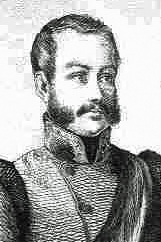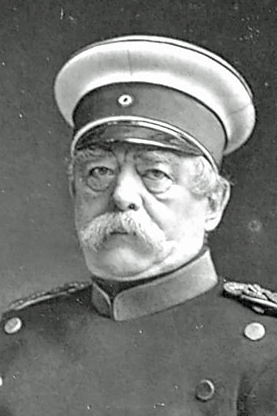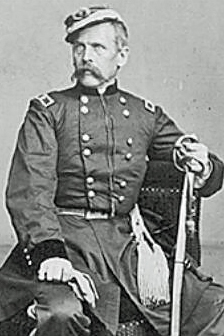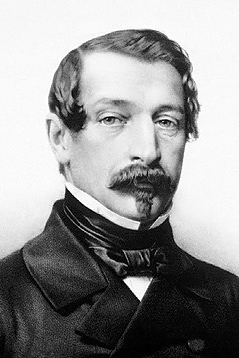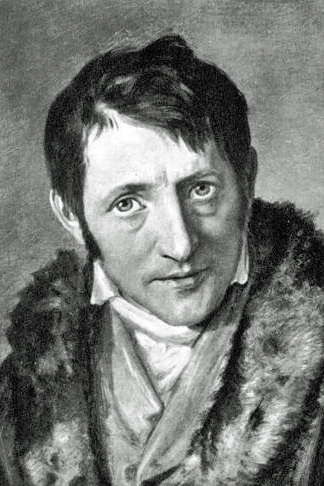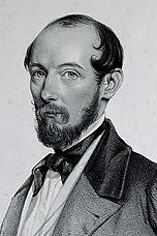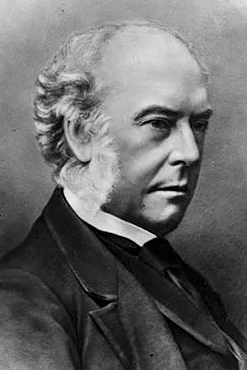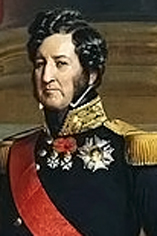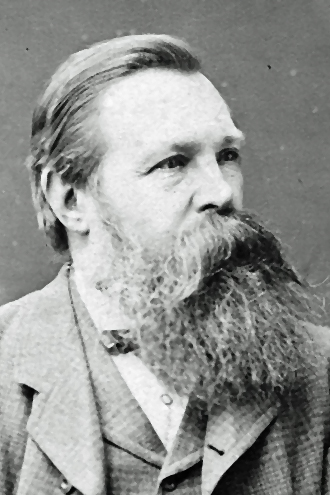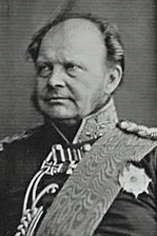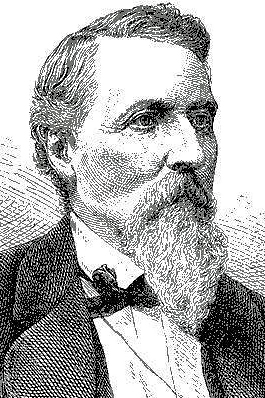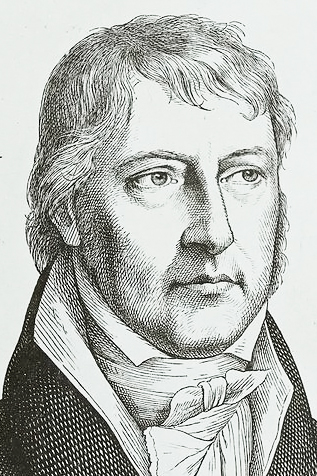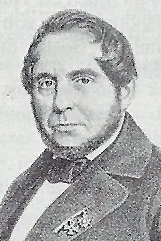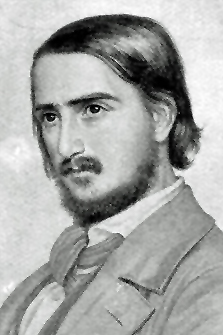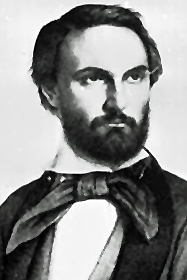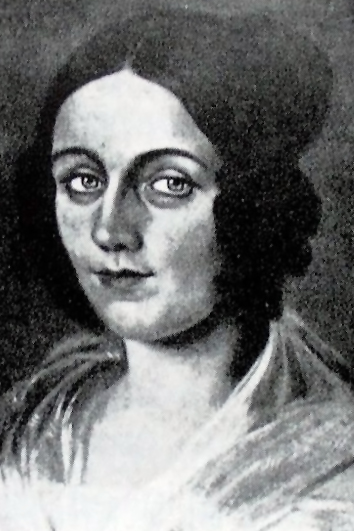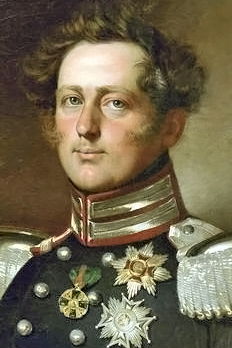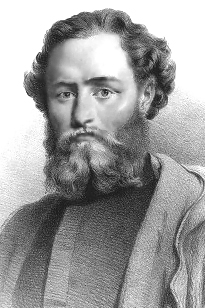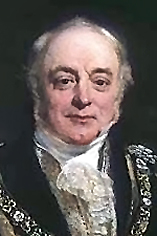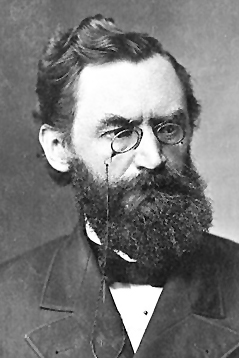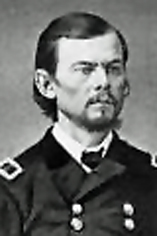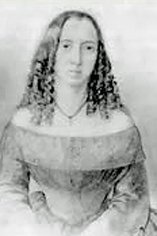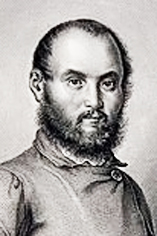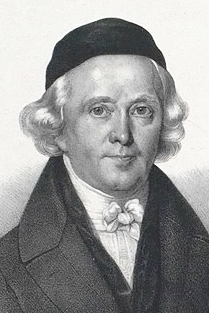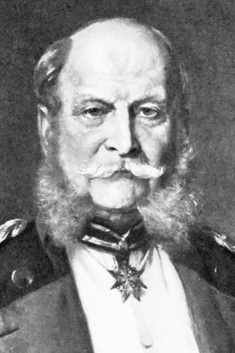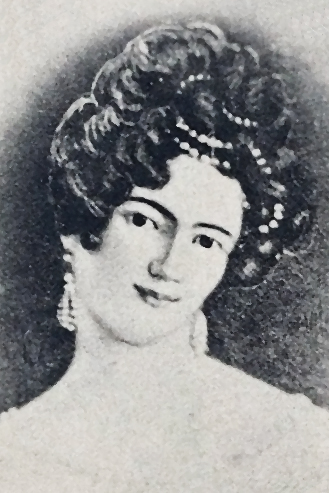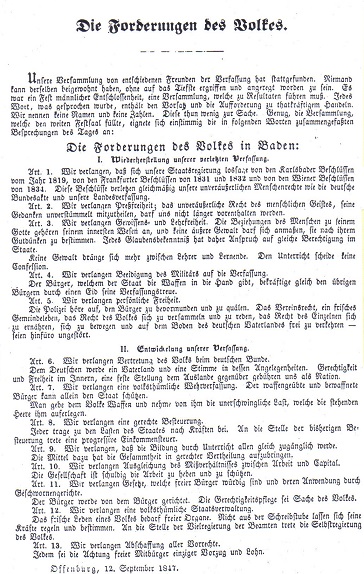Maps
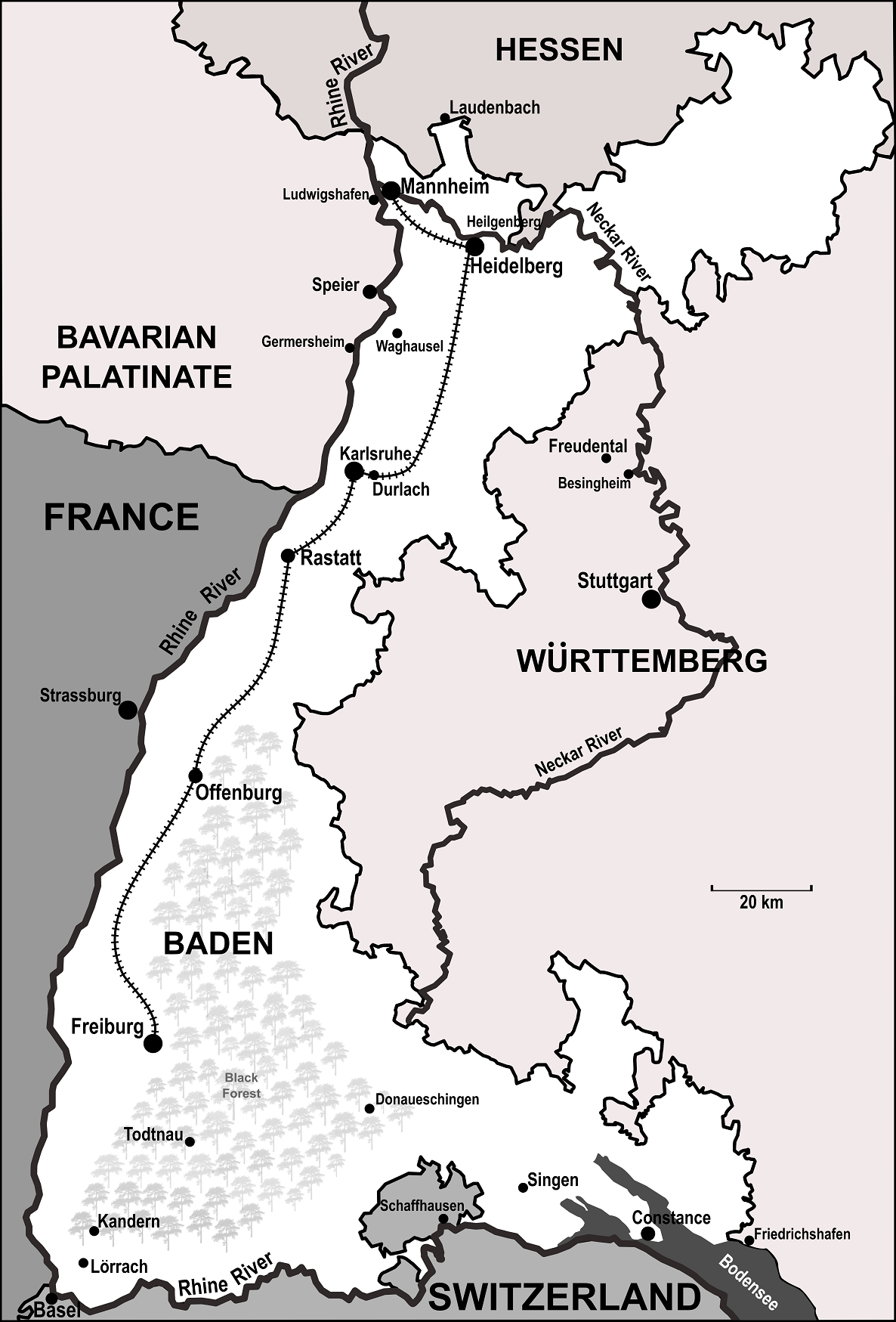
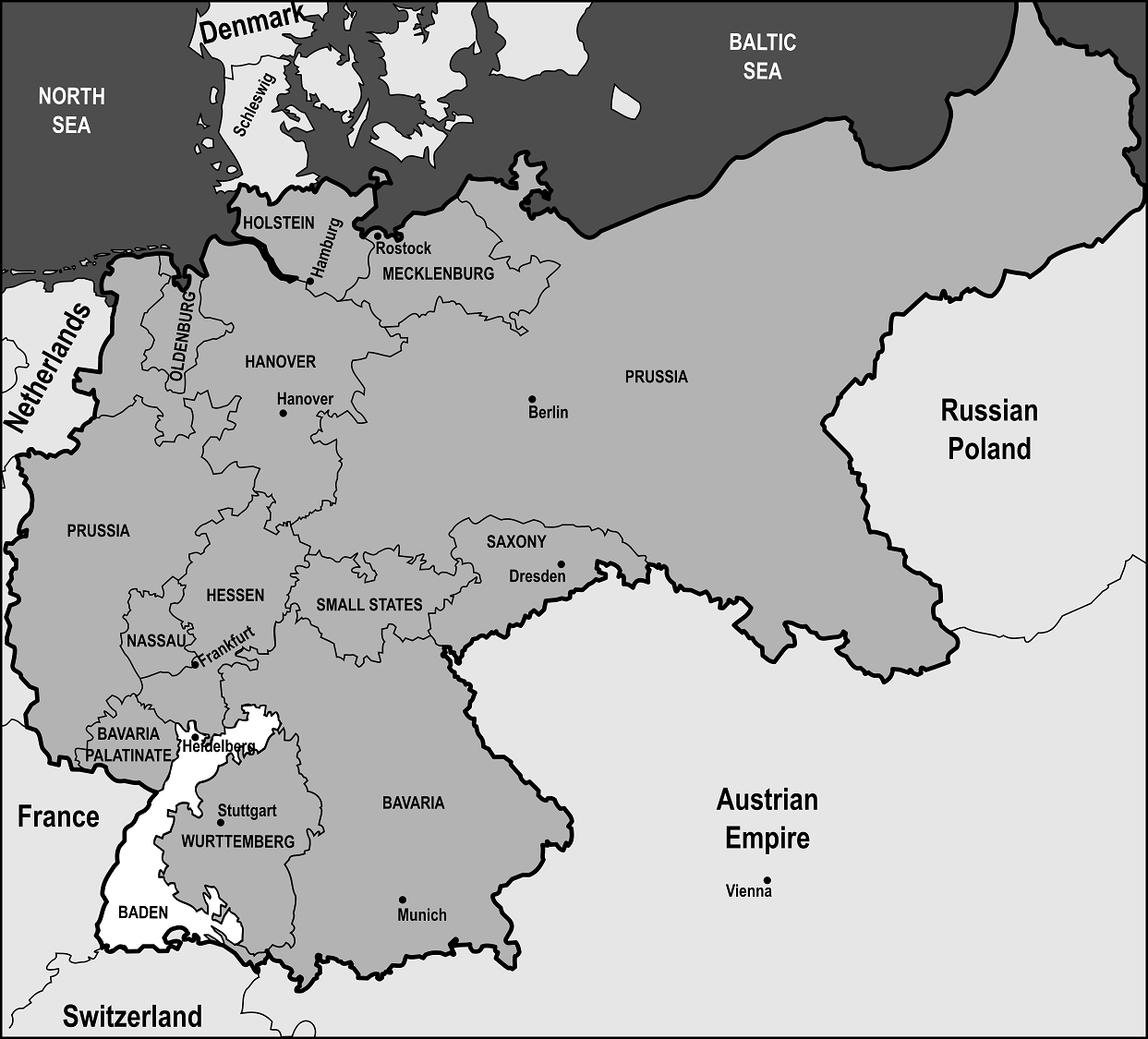
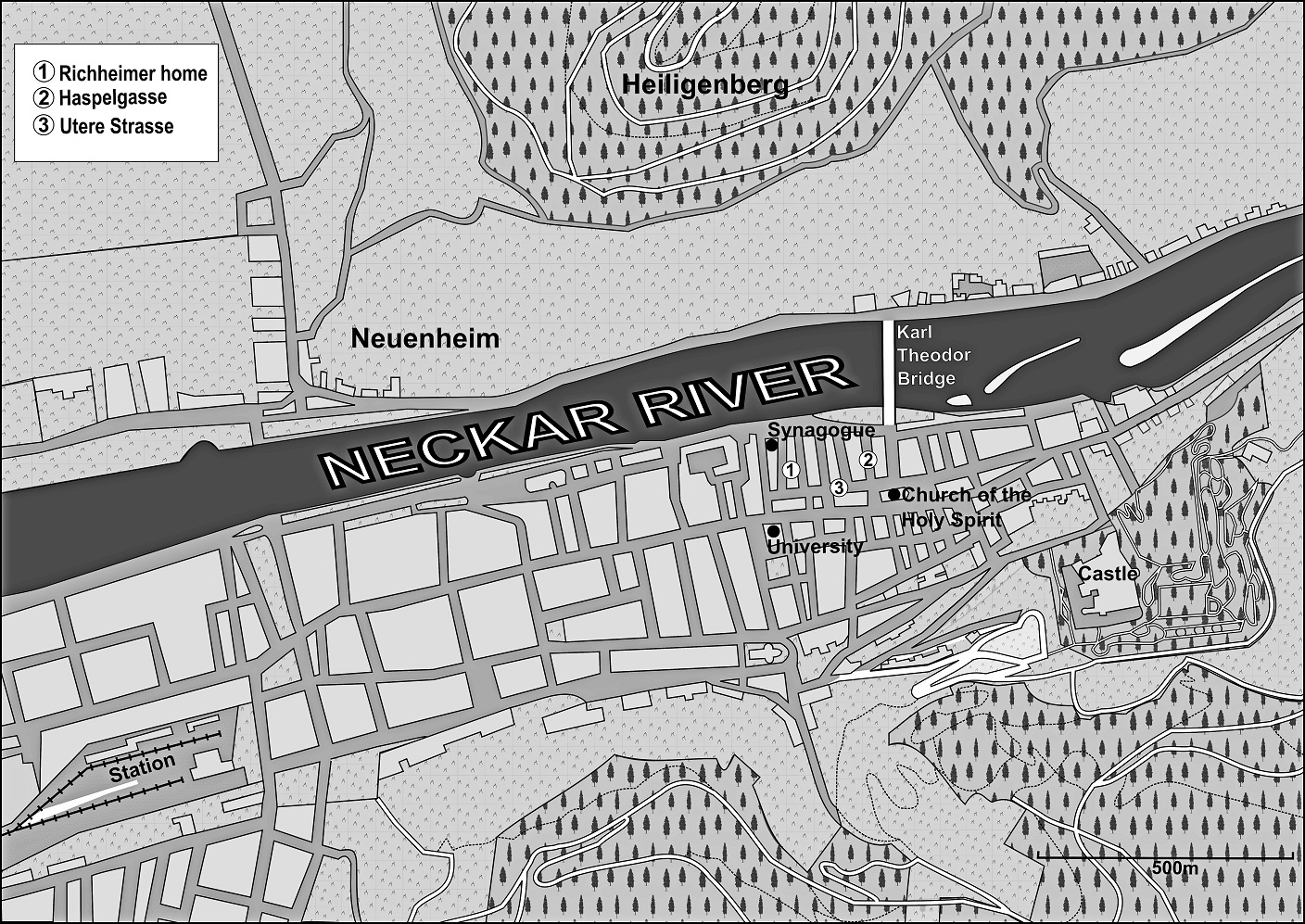
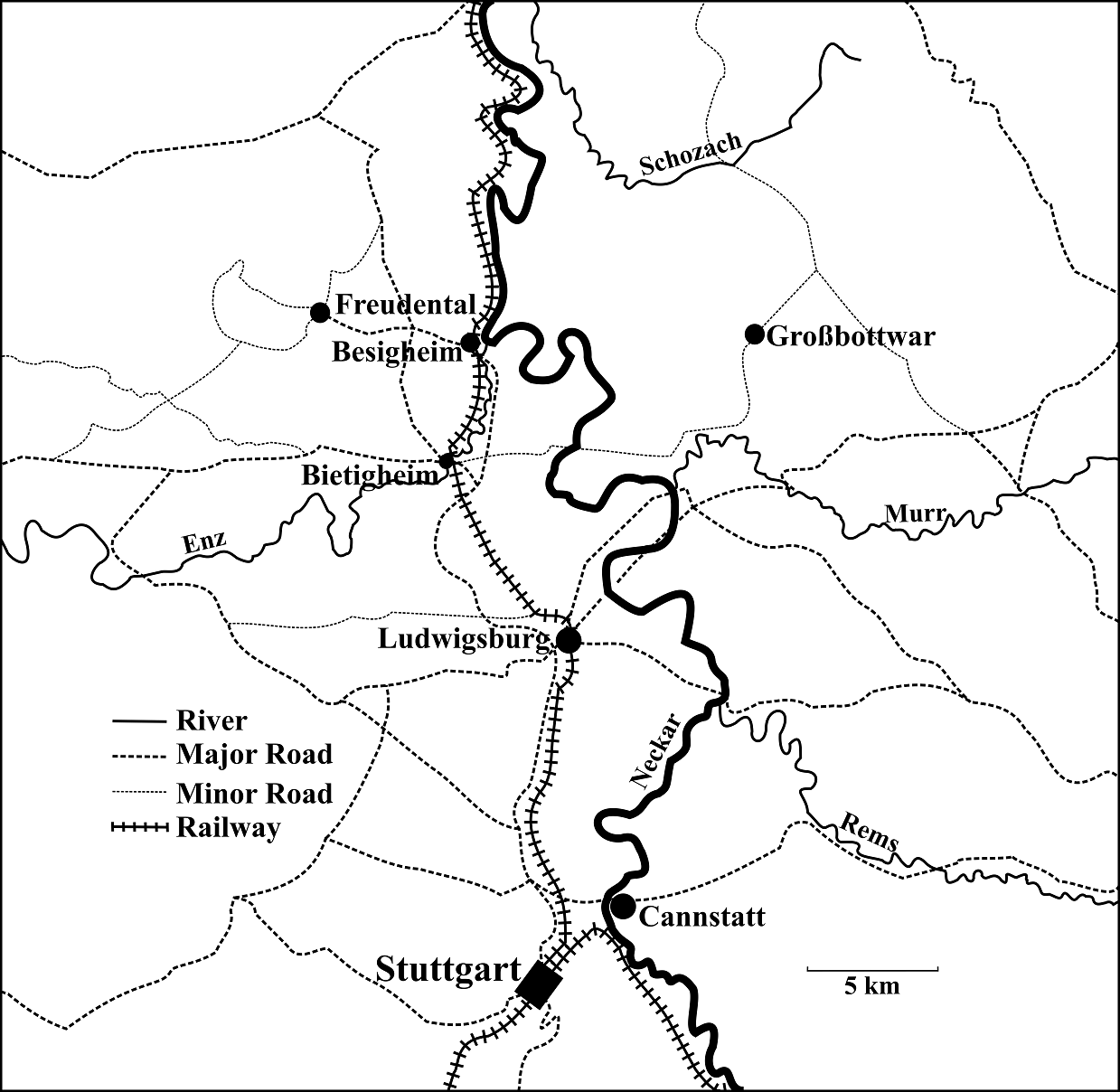
Illustrations
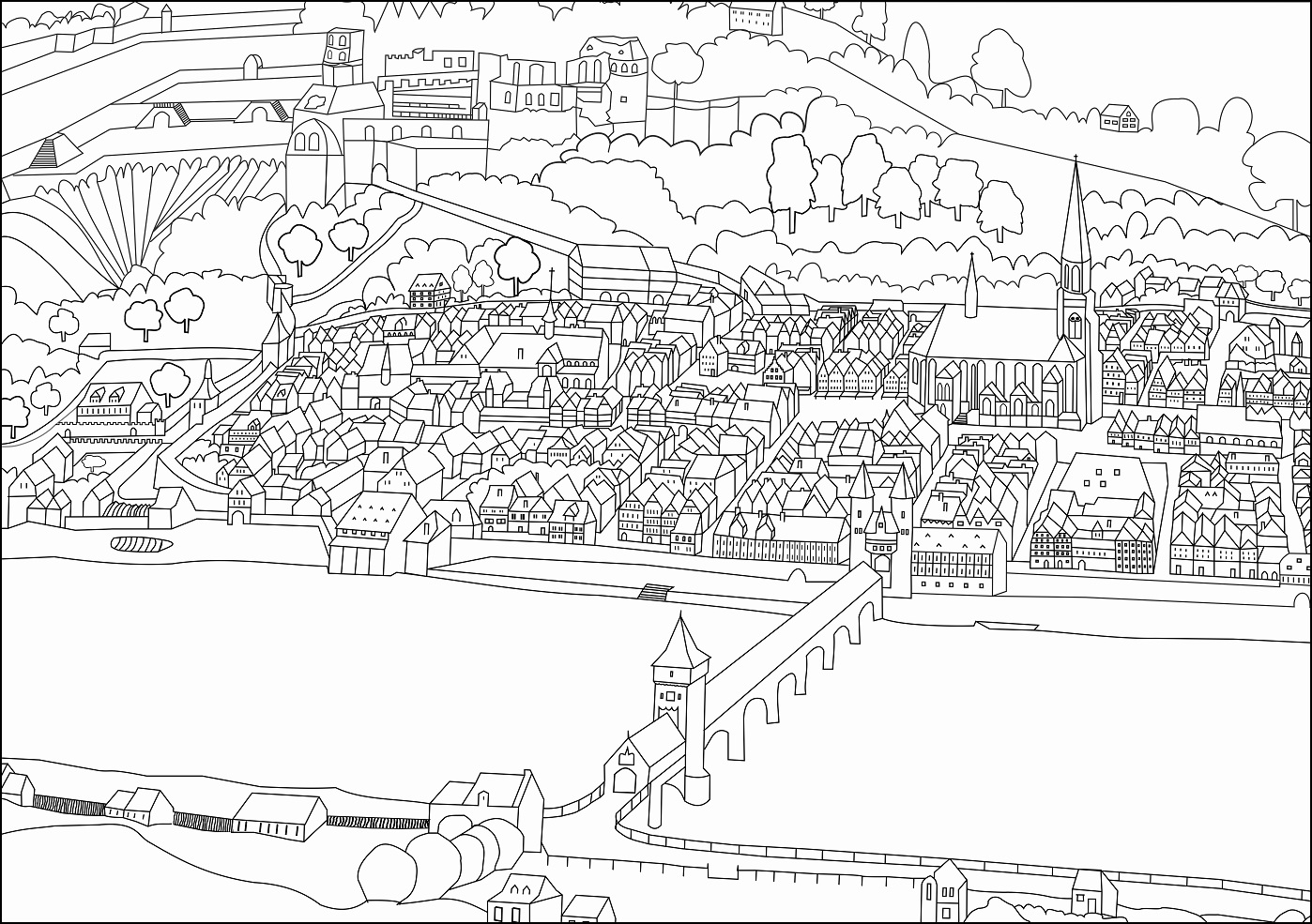
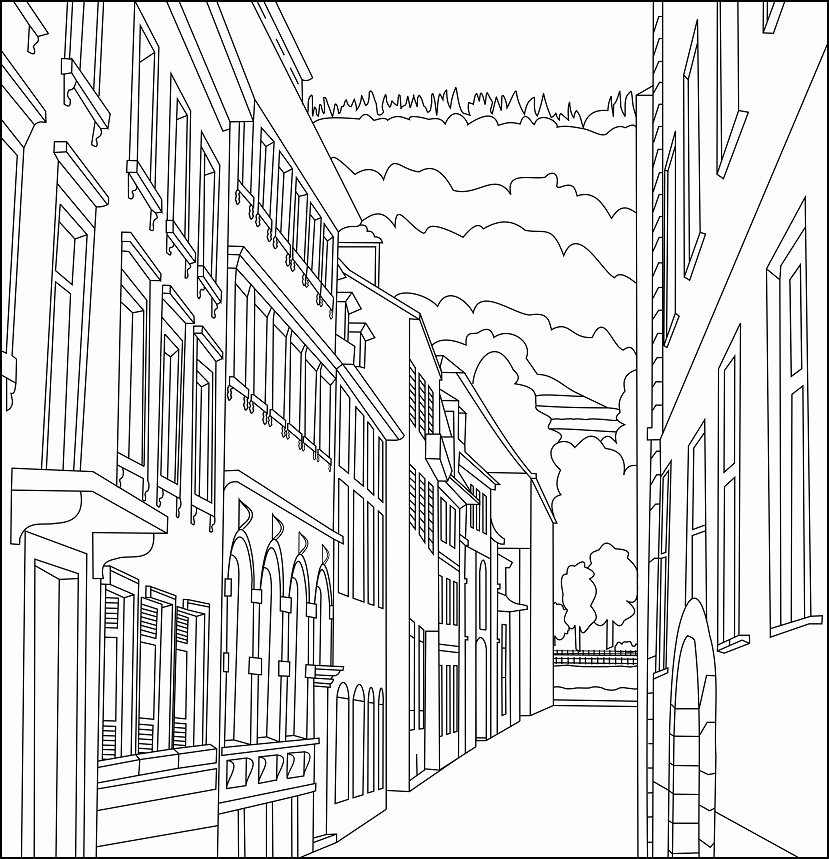
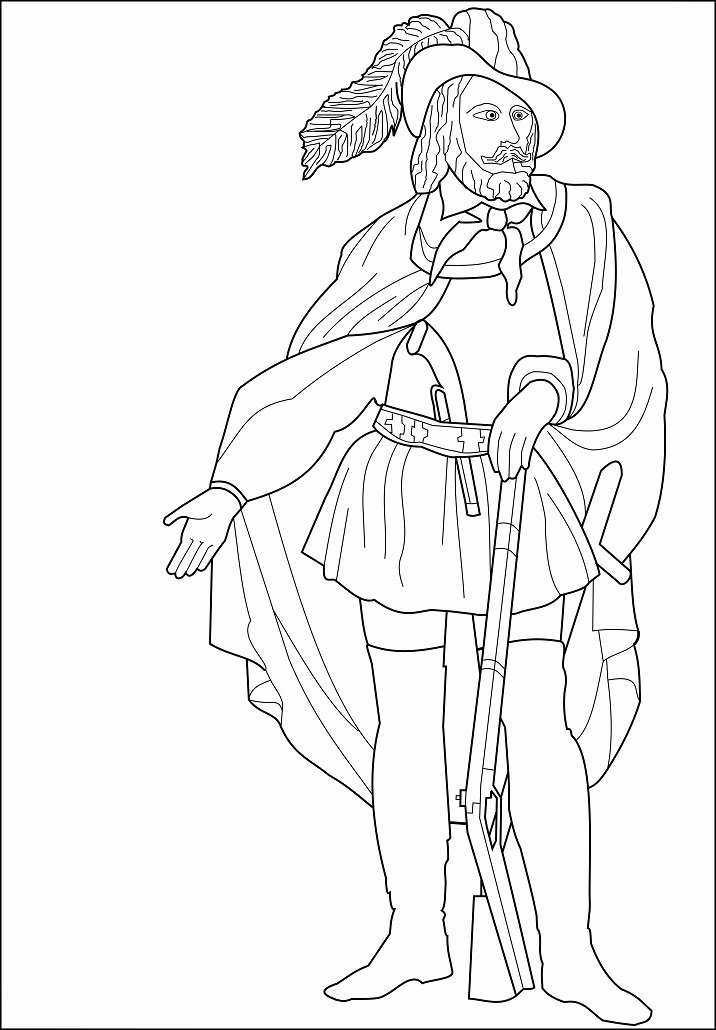
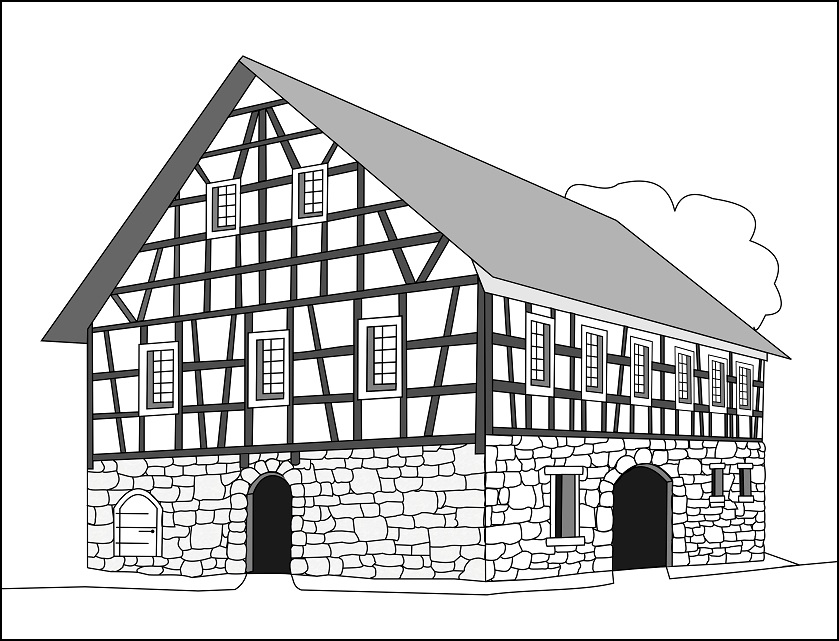
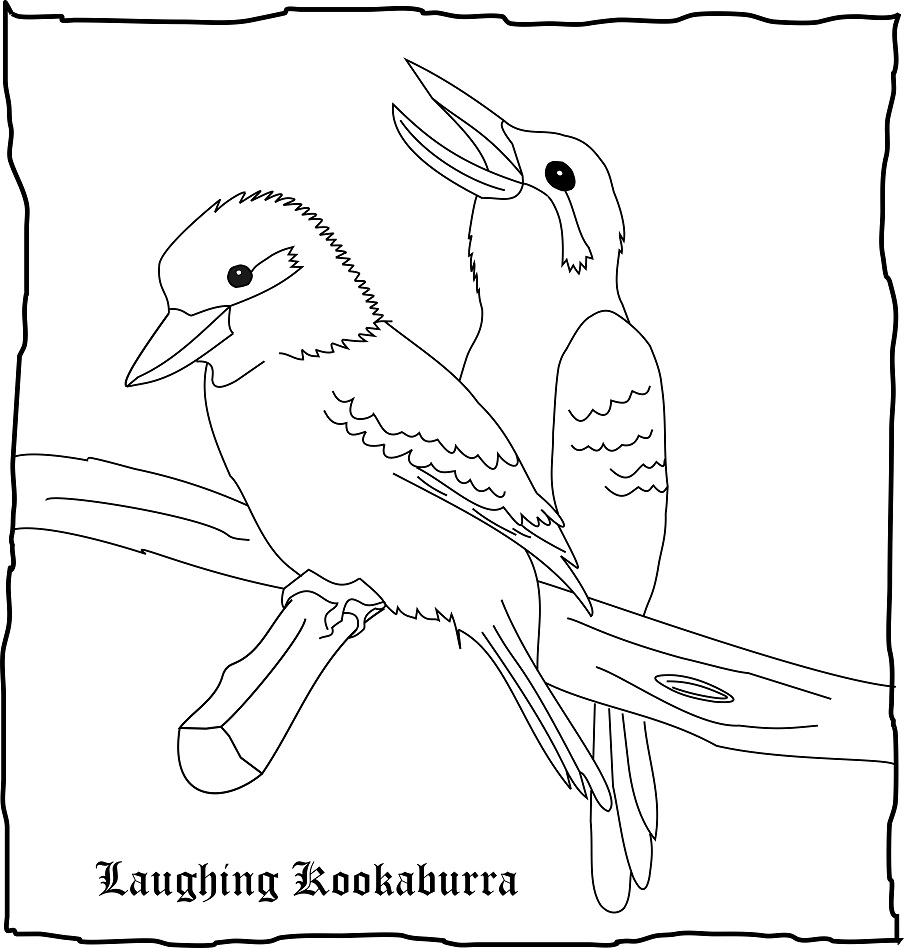
Timeline
| DATE | EVENT |
|---|---|
| 1789-1815 | First French Revolution. |
| 1795-1813 | French annex the former German Rhineland, (west side of the Rhine) and bring about many reforms, increasing industrial production and freedoms for the Jews. |
| 1814-1815 | Napoleon is defeated. The Rhineland is organised into the new Bavarian Palatinate at the Congress of Vienna, becoming a German state, one of 39 German speaking states forming the German Confederation. |
| 1816-1817 | Worst famine in Europe in the nineteenth century, possibly as a result of volcanic ash from the Mount Tambora eruption in 1815, which caused temperatures to decrease. Riots and looting occur in many cities. |
| 1819 | Hep-Hep riots of violence against Jews begin in August in Würzburg, Bavaria and the violence spreads to other German states. Many Jews are killed and much Jewish property is destroyed. |
| 1830 | |
| March | Leopold becomes the fourth Grand Duke of Baden |
| July | Second (July) French Revolution. Louis-Philippe becomes king of France. |
| 1832 | |
| May | Hambach festival (a political rally in support of revolution) is held at Hambach Castle in the Bavarian Palatinate. |
| 1840 | |
| September | The railway between Heidelberg and Mannheim opens. |
| 1845 | Public arguments between Orthodox and Reform Jews are printed in the Heidelberg and Mannheim newspapers. |
| August | Baden’s railway line reaches from Mannheim to Freiburg. |
| 1847 | |
| September | Offenburg meeting where Friedrich Hecker presents the 13 Demands of the people in Baden (Die 13 Forderungen des Volkes in Baden). |
| 1848 | |
| February | Third French Revolution. Louis-Philippe abdicates and a republic is declared, inspiring the democrats in Baden to push for their own revolution. |
| February 27 | The Mannheim People's Assembly meeting sends the 13 Demands of the people to the Second Chamber of the Badenese government. |
| March 19 | People's Assembly in Offenburg where 20,000 people listen to Hecker and Struve accuse the government of failing to act on the 13 Demands of the people, even though they had agreed to do so in September, 1847. |
| March 31 | Pre-parliament meetings in Frankfurt begin, where Hecker and Struve advocate for a republican government, but when this is rejected, they leave the meetings early. |
| April | Hecker, Struve and other revolutionaries meet in Constance from where the Hecker Uprising marches begin. The revolution is defeated by the army before the end of the month. The leaders flee to Switzerland. |
| May 1 | Elections for the National Assembly are held and all men have the democratic right to vote for their representatives. |
| May 18 | Elected delegates for the National Assembly meet at Frankfurt where they begin debating whether to have a constitutional monarchy or a republican government, and they also begin work on a new constitution. |
| September | Struve returns from Switzerland and declares a republic in Lörrach in southern Baden, but he and the other revolutionaries are arrested and taken to Freiburg for trial. |
| November | Pro-revolutionary newspapers print sections of Marx and Engels’ writings, including their Demands of the Communist Party in Germany (Forderungen der Kommunistischen Partei in Deutschland). Some newspapers are forced to close. |
| 1849 | |
| January | Brentano begins the People’s Club of Baden after the National Assembly once again permitted democratic clubs to operate. |
| March | The National Assembly complete work on what is known as the Imperial Constitution, which did not include Austria in the new German nation and the Prussian king, Friedrich Wilhelm IV, is asked to rule. |
| April 21 | Friedrich Wilhelm IV refuses the imperial crown and rejects the Imperial Constitution drawn up by the National Assembly, even though most of the German states had accepted the constitution during the time he was making up his mind. |
| April | The National Assembly is dissolved after threats from Prussia, Hanover, Saxony, and Bavaria, who all rejected the Imperial Constitution. This ends all hope for a democratic, united German nation. |
| April | Amalie Struve is released from Freiburg prison. She travels to Rastatt where her husband is incarcerated. |
| May 12-13 | The People’s Club of Baden call for club members to meet at Offenburg. From there they travelled to Rastatt, where the army regiments had joined the People’s Club, swearing allegiance to the revolution. |
| May 13 | There is fighting in Karlsruhe between the revolutionaries and soldiers loyal to Grand Duke Leopold, who flees Baden. Struve is released from Rastatt prison. |
| May 14 | Brentano and the People’s Club leaders travel to Karlsruhe where the city council ask them to set up a new government using the Imperial Constitution with Brentano as president. |
| May | King Friedrich Wilhelm IV of Prussia declares war against the new government of Baden. Every unmarried man in Baden aged 18-30 is conscripted into the army. |
| June | Elections are held in Baden on 3rd. Every man over 20 is able to vote. The new government, which includes the leaders of the People’s Club, meet in Karlsruhe on the 10th. |
| June | Badenese army amasses its soldiers on the norther border with Hessen where some fighting occurs. Hessian soldiers retreated. Mieroslawski becomes commander of the Baden army. |
| June 15 | 60,000 troops from Prussia, Hesse and Württemberg cross into Baden north of Heidelberg. Badenese soldiers are victorious. |
| June 20-21 | Prussian soldiers cross the Rhine south of Heidelberg and are victorious at Waghäusel, after the revolutionary army retreats. |
| June 24 | Prussians enter Heidelberg as the revolutionary army retreats south. |
| June 26 | Prussians pursue the revolutionary army who engage in battle with the Prussians at Durlach (near Karlsruhe) before retreating further south to Rastatt. |
| June 28 | The Badenese government in Freiburg sides with Struve against Brentano to continue the war. Brentano resigns. |
| June 29 | Battle at Rastatt but most of the revolutionary army flees south to Offenburg. Some 6,000 soldiers remained in Rastatt fortress, holding out against the Prussians. |
| July 1 | Badenese soldiers continued to abscond as the army marched into the Black Forest towards Donaueschingen. Representatives from the government also left Freiburg and joined the army there. |
| July 7 | Prussian soldiers enter Freiburg without a fight. |
| July 11 | The war council of the revolutionary army decides to end the war and go into exile in Switzerland. |
| July 12 | Those left in the army, apart from the soldiers still in Rastatt, cross the border. |
| July 23 | Soldiers in Rastatt surrender to the Prussians. The revolution has failed. |
| July | Schurz escapes from the Prussians occupying Rastatt and crosses the Rhine to France and from there to Switzerland. |
| September | Kinkel sentenced to life in prison and taken to Naugard Penitentiary in Pomerania. |
| 1849-1850s | Trials of revolutionaries begin and continue to be held over many months. |
| 1848-1850s | Many Badenese revolutionaries and their families emigrate to other countries, including France, England and Australia, but predominantly to the United States. |
| 1850 | |
| March | Schurz leaves his exile in Switzerland with false papers and returns to Germany with the purpose of devising a way to free Kinkel from prison. |
| May | Trial in Cologne of ten men accused of inciting sedition. Only 4 are present, the other 6 are in exile, including Schurz. Kinkel, one of the ten, speaks on their behalf and all are acquitted. Kinkel is then held on other charges. Schurz does not find an opportunity to rescue Kinkel from detention. Kinkel is taken to Spandau prison near Berlin. |
| July 1 | Prussian decree suppressing all newspapers that are in opposition to the government, comes into effect. |
| November 5 | Schurz successfully frees Kinkel from Spandau prison and together they travel to England. |
| 1852 | |
| April | Baden’s Grand Duke Leopold dies and his son, Louis II succeeds him. However, because of his mental illness, his brother Frederick is regent. |
| 1855 | |
| August | Baden’s Main railway line, from Mannheim to Basel completed. |
| 1860 | The term Jewish question, an anti-Semitic term, is discussed widely with many advocating solutions such as resettlement, deportation, or assimilation of Jews. Others oppose these ideas, suggesting instead re-integration and education. |
| 1861 | |
| January 2 | Prussia’s king Frederick William IV dies. His brother, Wilhelm I becomes king of Prussia. |
| 1861-1865 | American Civil War in which many of the exiled German revolutionaries fought on behalf of the Union army. |
| 1862 | Jews' right of residence, acquisition of real estate, and choice of profession are abolished in Wurttemberg. |
| September 23 | Otto von Bismarck is appointed as Minister President and Foreign Minister of Prussia. |
| 1866 | |
| June-July | Prussia’s domination following the Austro-Prussian War leads to the northern German speaking states forming the North German Confederation. |
| 1870-1871 | Franco-Prussian war. |
| 1871 | |
| January 18 | The new German Empire is formed, which included all German speaking states excluding Austria. This is the small German resolution (kleindeutsche Lösung). Prussia’s king Wilhelm I is formally proclaimed as emperor of the new German Empire in the Palace of Versailles. |
| April 22 | The Constitution of the German Empire, signed by emperor Wilhelm I, gives Jews civil and political rights. Jewish emancipation is achieved in all German states. |
Historical people
In alphabetical order
Becker, Johann Philipp: 1809–1886
Appointed commander-in-chief of the people’s militia (Volkswehr), which he called the “National Guard” and demonstrated his ability as a military and organisational leader. He went into exile in Switzerland with the army and there printed a revolutionary newspaper.
Beckert, Friedrich: 1796–?
A retired cavalry captain of the Badenese imperial regime, he became the Colonel and commander of revolutionary cavalry. He betrayed the revolution at Waghäusel by ordering a retreat which caused the revolutionary army to be defeated. He later tried to have the leaders of the revolution, Mieroslawski and Sigel, arrested, but was unsuccessful. He was arrested in Karlsruhe and taken to Rastatt prison but was later released by the Prussian army.
von Bismarck, Otto: 1815–1898
Known as the Iron Chancellor. He was chancellor of the North German Confederation 1867–1871, and was instrumental in bringing about the unification of the German states into one country. He was Prussia's Minister President 1862–1890, and was answerable only to king Wilhelm I, not the Prussian government. He resigned in 1890 after a disagreement with emperor Wilhelm II.
Blenker, Ludwig: 1812–1863
Born in Worms he joined the revolutionary army in 1848. Accompanied by his wife, Elise, he led his soldiers from Baden to Worms in May 1849, but was forced to retreat soon after. He fled to Switzerland when the revolution was defeated, then emigrated to the USA, becoming a general in the US army.
Bonaparte, Louis Napoleon: 1808–1873
Nephew of Napoleon I and is also called Napoleon III. He was president of France from December 1848–1852 but had ambitions to do away with the republic and become Emperor of France, which he did in 1852. He remained emperor until 1870 when he was captured during the Franco–Prussian war of 1870–1871.
Börne, (Karl) Ludwig: 1786–1837
Born a Jew with the name Loeb Baruch, but changed it in 1818 when he converted to Lutheran Christianity. A revolutionary writer, journalist and speaker at the Hambach Festival, a liberal, political gathering in 1832.
Brentano, Lorenz: 1813–1891
A lawyer in the supreme court of Baden, and representative in the Second Chamber of the Baden Parliament, before being elected to the Frankfort Parliament in 1848. He became the leader of the revolutionary government in 1849 after Grand Duke Leopold fled from Baden. After the revolution failed, he was sentenced to life imprisonment but he was already exiled in Switzerland and later went to America where he became a politician, anti-slavery author and later US consul in Dresden 1872–1876.
Carlebach, Herz Joseph: 1777–1851
Heidelberg city treasurer for valuables in 1832, he became the target of the August anti-Jewish riots. He was in good standing within the Jewish community and was its leader for some time. He lived at Unteren Strasse 33.
Challis, Thomas: 1794–1874
A businessman and member of the Court of Aldermen 1844–1874. He held the position of Lord Mayor of London 1856–1857. Image.
Common Serjeant, Mr
The position of Common Serjeant of London is a high office within the city, and is appointed by the Crown. Their duty as a senior judge of the Central Criminal Court, was to attend the trials of criminal offences along with the Lord Mayor and the Court of Aldermen. From 1850–1855, Edward Bullock (1800–1855?) held the position.
Cowper, Charles: 1807–1875
Australian politician and leader of the New South Wales government five times between 1856 and 1870. The second Cowper ministry was 1857–1859.
d'Orléans, Louis-Philippe: 1773–1850
As the eldest son of the duke of Orléans, he supported the French Revolution (1789), then bided his time until the second French Revolution (July revolution) when he became king in 1830. He remained king until he abdicated at the time of the third French revolution in February 1848.
Eichfeld, Karl: 1815–1857
Appointed Minister of War and Commander-in-Chief of the army in 1849 after being released from prison because of his democratic views. Then a lieutenant, he was promoted to Colonel. He was removed from his position when he decided not to send the army into Hessen to fight the Prussians. After the revolution he lived in Antwerp, Belgium.
Engels, Friedrich: 1820–1895
A co-author with Karl Marx of socialist then Communist books including the Demands of the Communist Party in Germany which expounded the immediate demands of the democratic revolution. It was published broadly throughout 1848 and 1849. He fought for the revolution in 1849 but fled to Switzerland after its defeat.
Frauenfelder, Peter: 1800–1873
Born in northern Baden, he was a vintner who emigrated to Albury, NSW, Australia. He wrote many letters back to Baden, extolling the virtues of Australia, one of which was included in Kirchner’s booklet Australia and its Advantages for Emigrants. In one letter he describes ten couples being married in the same ceremony, on their way to Australia, so they would be eligible for the financial support offered by the NSW government.
Friedrich Wilhelm IV: 1795–1861
King of Prussian 1840–1861. In 1848 he vacillated between the rebels and the army until his armies regained control. He refused the imperial crown offered to him by the Frankfurt National Assembly in 1849 which initiated more fighting and the ultimate defeat of the revolution. His brother, Wilhelm I, acted as his regent for the last three years of his reign.
Fürst, Solomon: 1792–1870
Heidelberg district rabbi from 1825 until his death. He was a moderate reformer, yet he also aligned himself with conservative orthodox Jews who opposed any religious reforms, even ones which Fürst supported. He lived at Haupt Strasse 53.
Hecker, Friedrich: 1811–1881
A lawyer and politician elected to Baden’s second chamber in 1842. He became a leader of the Baden revolution in 1848, devising peaceful marches in southern Baden which became known as the Hecker Uprising. After its defeat he fled to Switzerland and the USA where he fought in the American civil war on the side of the Union (northern). The Hecker song and hat remained symbols of the democratic revolution in Baden even after he left.
Hegel, Georg: 1770–1831
Began life as a theologian then focused on the philosophy of idealism and realism. From 1816–1818, he was a professor at Heidelberg University before moving to Berlin.
Heine, Jakob: 1800–1879
Doctor and orthopaedist who became famous for his work with infantile paralysis or Poliomyelitis patients. He founded a sanatorium in Cannstatt near Stuttgart in 1829 which he treated orthopaedic and rehabilitation patients using hydrotherapy and exercise. He remained there until he retired in 1865.
Herwegh, Georg: 1817–1875
A German poet who lived most of his adult life in exile in Switzerland and France. In 1848 he led a group of about 800 French and German emigrants from Paris, to join in the Hecker Uprising in Baden, but they arrived after the other groups had been defeated. He fled to Switzerland and did not return to Germany until the amnesty of 1866.
Kinkel, Gottfried: 1815–1882
A Protestant theologian, poet and professor. He joined the armed rebellion in 1849, believing he was acting in obedience to the Frankfurt Parliament. He was wounded, arrested and sentenced to life imprisonment, but later escaped with the help of Carl Schurz. He travelled to the USA, hoping to raise money for another attempt at a democratic revolution. He continued to live in exile for the rest of his life, in London and Zürich.
Kinkel, Johanna: 1810–1858
A writer, composer and musician who lived in Bonn and married Gottfried Kinkel, who acknowledged that his political radicalism resulted from his wife’s influence. She was editor of the Bonn democratic newspaper Neue Bonner Zeitung. She was instrumental in her husband’s escape from Spandau prison in 1850, by collecting donations from Kinkel’s supporters.
Kirchner, Wilhelm: 1814–1893
Lived in Australia from 1839–1848 when he returned to Frankfurt, Germany to work as an immigration agent for the New South Wales government. He wrote a booklet Australia and its Advantages for Emigrants which was widely circulated and successfully recruited many immigrants for the Australian Colony. Image.
Leopold, Grand Duke: 1790–1852
He became grand duke of Baden in 1830 and supported the liberal ideas of the revolution, granting concessions in 1848. In 1849, he opposed the revolutionary army and fled from Baden in May. In August, after the defeat of the revolution, he was reinstated by the Prussian army.
Maier, Gallus: 1808–1862
A medical doctor in Heidelberg who was appointed as commissaire of Heidelberg in 1849. It was his role to aid the revolution to resist Prussian intervention. After the revolution failed, he fled to Switzerland, then emigrated to the USA.
Marx, Karl: 1818–1883
A philosopher, author and economist, he is famous for his theories about capitalism and communism. Marx co-authored with Engels The Communist Manifesto, published in 1848.
Meier
The Meier family opened a cigarette factory in Heidelberg in the middle of the 19th century – later than suggested in the novel.
Mohrhard, Captain: ?–?
A member of the Swiss Legion which formed part of the rebel army during the 1849 revolution in Baden. He was captured by the Prussians at Karlsruhe after being wounded.
Mieroslawski, Ludwik: 1814–1878
A Pole, with a reputation as a military expert, a hero of revolutionary struggles in Europe and leader in the Polish Democratic Society. He was appointed as commander-in-chief of the republican uprising in Baden in June 1849 and after its defeat, he returned to Paris. Throughout his military life, he was a commander who ended all his campaigns in defeat, so that he has become known as the general of the lost cause.
Musgrove, Sir John: 1793–1881
Businessman, sheriff of London 1843–1844, alderman of the city of London and Lord Mayor of London 1850–1851. He served as a magistrate at the Central Criminal Court of London, the Old Bailey.
Oppenheim, Heinrich B: 1819–1880
Became the first Jewish lecturer in political science and international law at Heidelberg University but became a journalist in Berlin in the revolution of 1848. In 1849 he became editor of the Karlsruhe Zeitung newspaper, the official newspaper of the revolution, but was dismissed when he supported Struve against Brentano in June 1849. After the revolution, he went into exile in Switzerland, France, and England. He was unable to return to Germany until 1861. Image.
Otto-Peters, Louise: 1819–1895
In 1848 was editor of the first woman’s political newspaper in Leipzig which advocated for democracy and women’s right to vote. The motto of her newspaper was Female Citizens for the Republic of Liberty. Image.
Rehfuss, Karl: 1792–1842
Became a teacher and preacher to the Heidelberg Jewish community in 1821 where he introduced many reforms including public prayers in the German language, school books with reformed teachings which he had written and Bar Mitzvah ceremonies for boys and girls like a Christian confirmation which included examinations in the form of a catechism. He received a doctorate from Heidelberg University in 1832, in philosophy and theology. He lived at Große Mantelgasse 88, about 100m from the synagogue in Heidelberg.
Richheimer, Löb: 1733–1815
Teacher of Talmud school and Heidelberg’s rabbi until his death.
Schurz, Carl: 1829–1906
He and Kinkel (his teacher at university) established newspaper in Bonn which supports the ideas of democracy and revolution in 1848, then in 1849 he joins the revolution but is imprisoned by the Prussians in Rastatt prison but escapes and flees to Switzerland. In 1850, he returns to Germany with false identification papers with the aim of freeing Kinkel from prison, which happens in early November. He and Kinkel go to England, and he becomes well known because of his exploits. He later emigrates to the USA where he becomes a general in the Union army, then the first German–American to become a US senator after the civil war.
Sigel, Franz: 1824–1902
A lieutenant in the Badenese army before the revolution. In 1847 he left the army to study law at Heidelberg University, before joining the revolutionary army in 1848. He led a column in the peaceful march of 1848. In 1849 he briefly held the position of commander-in-chief, then served as second in command under Mieroslawski. After the revolution failed, he emigrated to the USA where he became a major general in the Union army and a newspaper man after the civil war.
Stehlin, Maria: 1821–1872
Along with her husband, Achaz Stehlin, she was a staunch republican and a co-founder of the Ettenheim Women's Association, whose red flag had the inscription prosperity, education and freedom for all. She was known for her decisive, military speeches and after the revolution’s defeat, she was sentenced to one year in prison for taking part in the revolution, although by then she and her husband had fled to Switzerland. They later emigrated to the USA where they ran a hotel. Image.
Struve, Amalie: 1824–1862
An early suffragette and committed democrat who participated in the 1848 Hecker Uprising along with her husband, Gustav. With its failure, the Struve’s fled to Switzerland, but in September, 1848, they again tried to form a republic in southern Baden. They were captured and Amalie was held in solitary confinement for more than 200 days. After release she immediately travelled to Rastatt where her husband was imprisoned, and there she continued to advocate for revolution. She fled to Switzerland after the failure of the revolution and later emigrated to the USA with her husband.
Struve, Gustav: 1805–1870
A doctor, politician, lawyer and publicist, and a revolutionary, along with his wife Amalie, during the German revolution of 1848–1849 in Baden. Before the revolution he edited a political newspaper in Mannheim and later started his own newspaper called German Viewer. He was elected a member of the Vorparlament (pre-parliament). See entry on Amalie Struve for his contribution to the revolution. After the revolution he and Amalie emigrated to the USA where he was a captain in the Union army, serving under Blenker. When Blenker was replaced by a Prussian, Struve resigned from the army, rather than serve under him.
Thibaut, Anton F J: 1772–1840
Was appointed professor of civil law at Heidelberg University in 1806. He, along with Professor Daub, led students to restore order in Heidelberg during the Hep-Hep riots of 1819. It is suggested that David and Sigmund Zimmern may have appealed to him for help in protecting the Jews, when the town authorities refused to help.
Thompson, George: 1812–?
A police sergeant in Whitechapel, London in 1851 who gave evidence at the Old Bailey court against various criminals.
Traub, Hirsch: 1791–1849
An orthodox rabbi for the city of Mannheim, he was opposed to the reform Jewish movement, writing and speaking out against it, although he preached in the German language. He was a signatory to a petition supporting orthodoxy (something which Solomon Fürst also did).
Wagner, Richard: 1813–1883
A composer of dramatic operas and music which symbolised his ideas of revolution. He also wrote articles advocating revolution and took part in the 1849 Dresden uprising, which failed. When a warrant was issued for his arrest, he fled to Switzerland and lived in Zurich for a number of years. He is criticised for his anti-Semitism and for this, and his music, he was beloved by Hitler.
Weisshaar, Joseph: 1814–1870
An innkeeper, politician and active member of the 1848 revolution. He led a column in the peaceful march of 1848, coming to aid Hecker’s column after its defeat. Elected on June 3, 1849 to the new revolutionary parliament in Baden. Image.
Wilhelm I: 1797–1888
Became king of Prussia in January 1861, when his brother Friedrich Wilhelm IV died. He appointed Bismarck as Minister President in 1862. After the unification of the German states, he became emperor of the German Empire in 1871, and was crowned at Versailles after defeating the French.
Zimmern, David: 1767–1845
A wealthy merchant who lived in Heidelberg and was leader of the Jewish community for many years. His house contained the businesses of retail, wholesale and banking. His home was also a meeting place, with both academic and business invitees. Their meetings demonstrated musical and literary interests as well as political and religious discussions, with the emancipation of Jews a key topic. In 1832, he retired and his son Adolph took over the management of the business. Image.
Zimmern, Adolph: 1797–1864
David’s second son, and like his father he was a liberal Jew who embraced the reforms. He was active in Heidelberg politics but was conservative in his views. He was the first Jew elected to the Great Citizens’ Committee and was chairman of the guild for 25 years. He succeeded his father in the family business and unlike all his other siblings he did not convert to Christianity.
Zimmern, Löw: 1811–1855
David’s third son, was baptised a Christian in 1827 and changed his name to Ludwig. Later he joined the family business and the name Zimmern Brothers was able to remain unchanged.
Zimmern, Regine: 1800–1870
David’s third child and eldest daughter. She was baptised at the time she married Salomon Jolberg, the Zimmern’s former tutor. In 1832, she returned to Heidelberg after her husband’s death and lived with her father across the street from their original home, where Adolph now lived. Once again, she took on the role of hostess for the guests at the Zimmern’s home.
Zimmern, Sigmund: 1796–1830
David’s eldest son studied law at Heidelberg from 1813 until his doctorate in 1817. Thibaut was one of his lecturers. In 1821 he applied for a professorship but was rejected by the university because he was Jewish. In September, 1821 he was baptised in Karlsruhe, and one month later became a full professor.
Zitz-Halein, Kathinka: 1801–1877
Leader of the group called Humania Association for Patriotic Interests with the aim of helping women whose husbands or fathers were in exile or prison because of the revolution. They were given money to help with mortgage payments, medical expenses or to redeem pawned goods. Her group supported a day-care for children so the women could work. She campaigned for financial donations to help free Kinkel from prison. She was known as a poet, author and translator of historical works into German, including three of Victor Hugo’s plays.
13 Demands of the People of Baden
The demands of the people.
Our gathering of staunch supporters of the Constitution has taken place. No one can have attended it without being deeply moved and excited. It was a celebration of manly determination, a gathering that must produce results. Every word that was spoken contains the intention and the call for active action. We don't give names or numbers. These give little to the point. The assembly, which filled the wide ballroom, unanimously appropriated the discussions of the day summarized in the following words:
The demands of the people in Baden:
I. Restoring Our Wounded Constitution.
Art. 1. We demand that our State Government renounce the Karlsbad Decrees of 1819, the Frankfurt Decrees of 1831 and 1832 and the Vienna Decrees of 1834. These decisions equally violate our inalienable human rights like the German Federal Act and our state constitution.
Art. 2. We demand freedom of the press; the inalienable right of the human spirit to communicate its thoughts unmutilated, must no longer be withheld from us.
Art. 3. We demand freedom of conscience and freedom of teaching. Man's relationships with his God belong to his innermost being, and no external power may presume to determine them as it sees fit. Every creed therefore has a right to equal authority in the state. Violence no longer intrudes between teachers and students. No denomination separates the class.
Article 4. We require the military to swear an oath to the Constitution. The citizen who is given arms by the state affirms his loyalty to the constitution with an oath, just like the other citizens.
Art. 5. We demand personal freedom. The police stop patronizing and torturing the citizen. The right of association, a fresh communal life, the right of the people to assemble and to speak, the right of the individual to feed himself, to move about and to circulate freely on the soil of the German fatherland - are undisturbed in the meantime.
II. Development of our Constitution.
Art. 6. We demand representation of the people at the German Confederation. The German will have a fatherland and a voice in its affairs. Justice and freedom at home, a firm position vis-à-vis abroad, are due to us as a nation.
Art. 7. We demand a popular military constitution. Only the armed and trained citizen can protect the state. Arms should be given to the people and the unaffordable burden imposed on them by the standing armies should be taken away from them.
Art. 8. We demand fair taxation. Everyone contributes to the burden of the state to the best of their ability. A progressive income tax will replace the previous taxation.
Art. 9. We demand that education through instruction be made equally accessible to all. The means for this must be raised by the community in a fair distribution.
Art. 10. We demand compensation for the imbalance between work and capital. Society has a duty to uphold and protect work.
Art. 11. We demand laws worthy of free citizens and their application by juries. The citizen is judged by the citizen. Justice is a matter for the people.
Art. 12. We demand a popular state administration. The fresh life of a people requires free organs. His powers cannot be regulated and determined from the office. The self-government of the people takes the place of the multi-government of officials.
Art. 13. We demand the abolition of all privileges. Respect for free fellow citizens is everyone's only privilege and reward.
Offenburg, September 12, 1847.
Eshet Chayil
Proverbs 31:10-31
A woman of valour who can find? She is far more precious than jewels.
Her husband’s heart trusts in her, and he will have no lack of gain.
She does him good, and not harm, all the days of her life.
She seeks wool and flax, and works with willing hands.
She is like the merchant ships; she brings her food from afar.
She rises while it is yet night and provides food for her household and portions for her maidens.
She considers a field and buys it; with the fruit of her hands, she plants a vineyard.
She dresses herself with strength and makes her arms strong.
She sees that her merchandise is profitable. Her lamp does not go out at night.
She puts her hands to the distaff, and her hands hold the spindle.
She opens her hand to the poor and reaches out her hands to the needy.
She is not afraid of snow for her household, for all her household are clothed in scarlet.
She makes coverings for herself; her clothing is fine linen and purple.
Her husband is known in the gates when he sits among the elders of the land.
She makes linen garments and sells them; she delivers sashes to the merchant.
Strength and dignity are her clothing, and she laughs at the time to come.
She opens her mouth with wisdom, and the teaching of kindness is on her tongue.
She oversees the ways of her household and does not eat the bread of idleness.
Her children rise up and call her blessed; her husband also praises her:
“Many women have done excellently, but you surpass them all.”
Charm is deceitful, and beauty is vain, but a woman who fears the LORD is to be praised.
Give her of the fruit of her hands, and let her works praise her in the gates.
